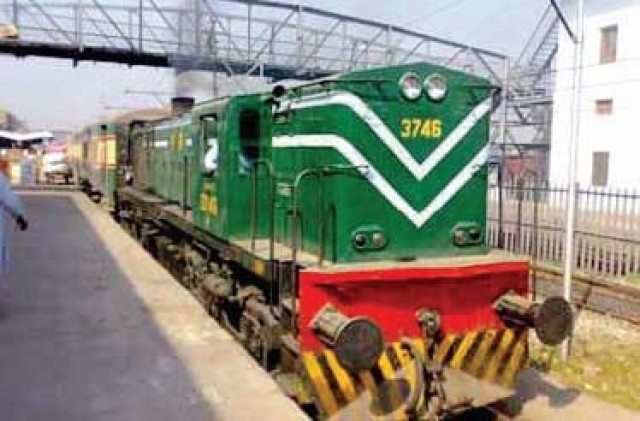Railways privatisation hits low-income commuters
The outsourcing of 11 more trains risks impacting the affordability of inter-city travel

In a latest development, Pakistan Railways has initiated the process of outsourcing 11 more trains, which will now operate under the Public-Private Partnership (PPP) model. Critics, however, have argued that the move overtly aimed at improving railway services might actually be a ticket to exclusion for the low-income passengers relying heavily on cheap modes of inter-city transportation.
While railway officials claim that outsourcing will improve the quality of services, civil society representatives have expressed deep concerns over the move, which may lead to increased fares, creating difficulties for the underprivileged masses. It is worth noting that railway travel in Pakistan is still considered a popular mode of cheap transportation for the poor and middle-class groups. According to estimates, around 100,000 people travel daily by trains, mostly on major railway routes between Karachi and various cities in Punjab.
A passenger, Muhabbat Ali, who frequently travelled from Larkana to Karachi on the Mohenjo-Daro Express, revealed that although various bus operators were operating on this route, he preferred traveling by train due to the reasonable fare and comparatively comfortable journey.
Malik Tanveer Awan, a Karachi-based employee, revealed that he frequently travelled to Punjab by train. "While a slight fare increase may not affect salaried individuals, even a minor fare hike could seriously impact labourers who travel from Punjab to Karachi for work. Pakistan Railways should reserve some economy coaches on PPP trains with no fare hike, ensuring affordability for low-income passengers," requested Awan.
According to sources of The Express Tribune, Pakistan Railways currently operates a total of 47 trains, of which 11 have already been outsourced, while 11 more are being offered for public-private operation. According to Pakistan Railways administration, the trains being outsourced include Bolan Mail (Karachi to Quetta), Hazara Express (Karachi to Havelian), Khushhal Khan Khattak Express (Karachi to Peshawar), Bahawal Din Zakariya Express (Karachi to Multan), Shalimar Express (Karachi to Lahore), Musa Pak Express (Dera Ghazi Khan to Lahore), Thal Express (Multan to Rawalpindi), Mehran Express (Karachi to Mirpurkhas), Mohenjo Daro Passenger (Kotri to Rohri) and Rawalpindi Express (Havelian to Rawalpindi).
According to Zahid Farooq, an urban planning expert at the Urban Resource Centre (URC), trains are still a preferred mode of transportation for the labour class therefore, any increase in fares will disproportionately affect this segment. "Pakistan Railways' decision to hand over more trains to private operators will gradually reduce government control over railways. As a result, the government will not be able to provide relief to the public in the future by running special trains on holidays or reducing fares on special occasions. Therefore, handing over trains to private operators is not the correct way of improving the railways' services," said Farooq, while suggesting that the government may increase its railway revenue by reviving cargo services.
Hamid Qureshi, Divisional Commercial Officer (DCO) of Pakistan Railways in Karachi, told The Express Tribune that under the PPP model, fare increases of more than 10 per cent were not permitted. "Therefore, only a minor fare increase may be expected, but in return, passenger services will be improved. PPP trains are equipped with water dispensers and Wi-Fi; amenities not commonly available in regular trains," claimed Qureshi.




















COMMENTS
Comments are moderated and generally will be posted if they are on-topic and not abusive.
For more information, please see our Comments FAQ